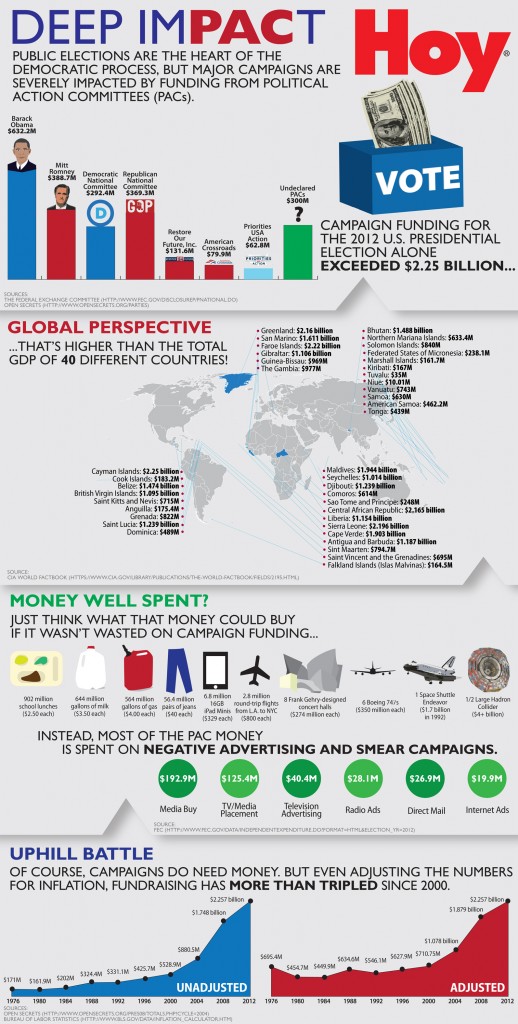Latino Money: The Missed Political Story of 2012

Here’s something interesting that bubbled up in the wake of last week’s election: 4% of all itemized political contributions this year came from mostly Latino neighborhoods. That’s according to a study done by the Associated Press and reported in a story published on November 3rd.
There is so much to unpack here, the best plan is to take things one step at a time.
First, this falls in the context of a basic political premise: a group, any group, doesn’t own it’s politics unless it can fund it. So for all that’s been ballyhooed about the rise of the Latino political clout one fact remains painfully obvious – Latinos don’t, as yet, fund their own politics. That is, Latinos don’t fuel the machines that run the candidates of their choosing. Or at least that’s what it seems.
The published AP study would seem to back that reality. Four percent of a total of $1.3 billion in itemized contributions spent on the election (roughly $52,ooo,ooo.oo) is not pocket change. But in comparison, when 16% of the U.S. population is Latino, it falls short on optics. But the flip side is just as telling: 90% of the itemized contributions came from predominantly white neighborhoods. And that says as much about the distribution of affluence as it does about political funding.
Then there’s the idea that the only way that the AP could do it’s research was to compile lists of persons who had given more than $200.00 because political parties and campaigns are not required to disclose the names of persons who donate less than that amount. Also, the data don’t include demographic information, so the study was done by matching addresses to neighborhoods. You can start to see the holes at the bottom of the raft.
There are too many assumptions here to list, so I’ll make note of the biggest one: Latinos don’t contribute to political campaigns because they don’t give $200.00 or more. What was the word Joe Biden used? Malarkey.
I would bet that Latinos did in fact contribute to their chosen political cause, but they did so at a rate that wasn’t captured by the official data. Fifty bucks here, ten dollars there, it adds up when you consider 16% of the U.S. population. And that brings me back to my original point.
It may well be that Latinos are funding their own politics, but the data gathering system is set up in such a way that the story, that important part of the Latino political narrative, is being missed – especially by news agencies as important and trusted as the Associated Press.
And when you consider the incredibly large amount of money that was spent on this past election – more than $2.25 billion – and compare it to the overall budgets of entire nations, our political spending spree begins to feel a little narcissistic. Here’s a great infographic on election spending, put together by Hoy.



